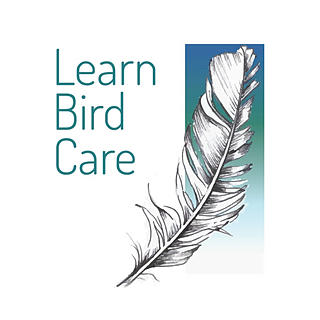Birds don’t deserve a bad rap
- Learn Bird Care
- Apr 12, 2019
- 2 min read
Updated: Jul 18, 2019
Birds have a bad rap. People accuse them of being difficult to treat, or worry that if you handle them, they’ll die. Birds that were “fine one day” just “suddenly die”. Or perhaps you have heard the rumour that if you handle a chick fallen from a nest, the parents won’t take it back. All incorrect!

Birds certainly differ in several ways to a mammal. They have some body systems that are a bit different, such as their breathing system which is more like a bellows with air sacs and rigid lungs, rather than lungs like ours that stretch and inflate. However, they still have hearts, kidneys, livers, spleens and intestines very similar to ours. Birds are also more prone to getting cold (hypothermia) and often need thermal support when they are ill or injured.

Birds will mask signs of illness to avoid getting eaten by predators, so they can sometimes look healthier than they are – but there are always tell-tale signs and once you know what to look for, you can start to treat them much earlier. For instance, if you observe their daily input and output (yes – food and poop!) of your chicken or pet cockatiel, you know what is normal for that bird to eat. If their appetite goes down or their droppings change colour or consistency, you will notice and that is the time to get them checked…not weeks later when they have lost a lot of body weight! Other subtle signs of illness include increased “sleepiness”, sitting low on their perch (weakness), reduction of movement or flying, fluffed up feathers or poor feather quality. Knowing your bird, being observant and taking action quickly will so often avoid larger and harder to treat health problems.

After many years of working with sick and injured birds, I am constantly amazed about how strong they are. I have seen birds with horrific injuries simply look at me with no obvious signs of pain. These birds still need pain relief!! I have seen birds look like they are near death come right - simply by providing warmth, good hydration and good nutrition. I have seen birds withstand highly complex and prolonged surgeries and make a full recovery, given the right nursing and post-operative care. I have seen birds with terrible fractures fly again and be released to the wild.

Birds do not deserve a bad rap: they are not difficult, they are just different. It is up to us as carers to learn their needs and adapt what we do to support them. We need to learn bird care!
Written by
Dr Janelle Ward
Wildlife veterinarian
(All photos are the copyright of Wild Bird Care-NZ)
Learn Bird Care was co-founded by Dr Janelle Ward and Mandy Robertson. Learn Bird Care offer specialist online courses on wild bird rescue,1st aid and care.
To stay in touch and find out about new blog posts and courses as they are released, register for our free newsletter today and you will also receive our ' Basic Bird Rescue and Initial Care' booklet!






The digital platform of UP Bhulekh has revolutionized land record management, making the process of viewing Khatauni (Record of Rights) much more accessible to the citizens of Uttar Pradesh.
The most crucial step after registering is the UP Scholarship Login itself, as this is your gateway to complete the detailed application form and avoid last-minute rush to update your academic and bank details.